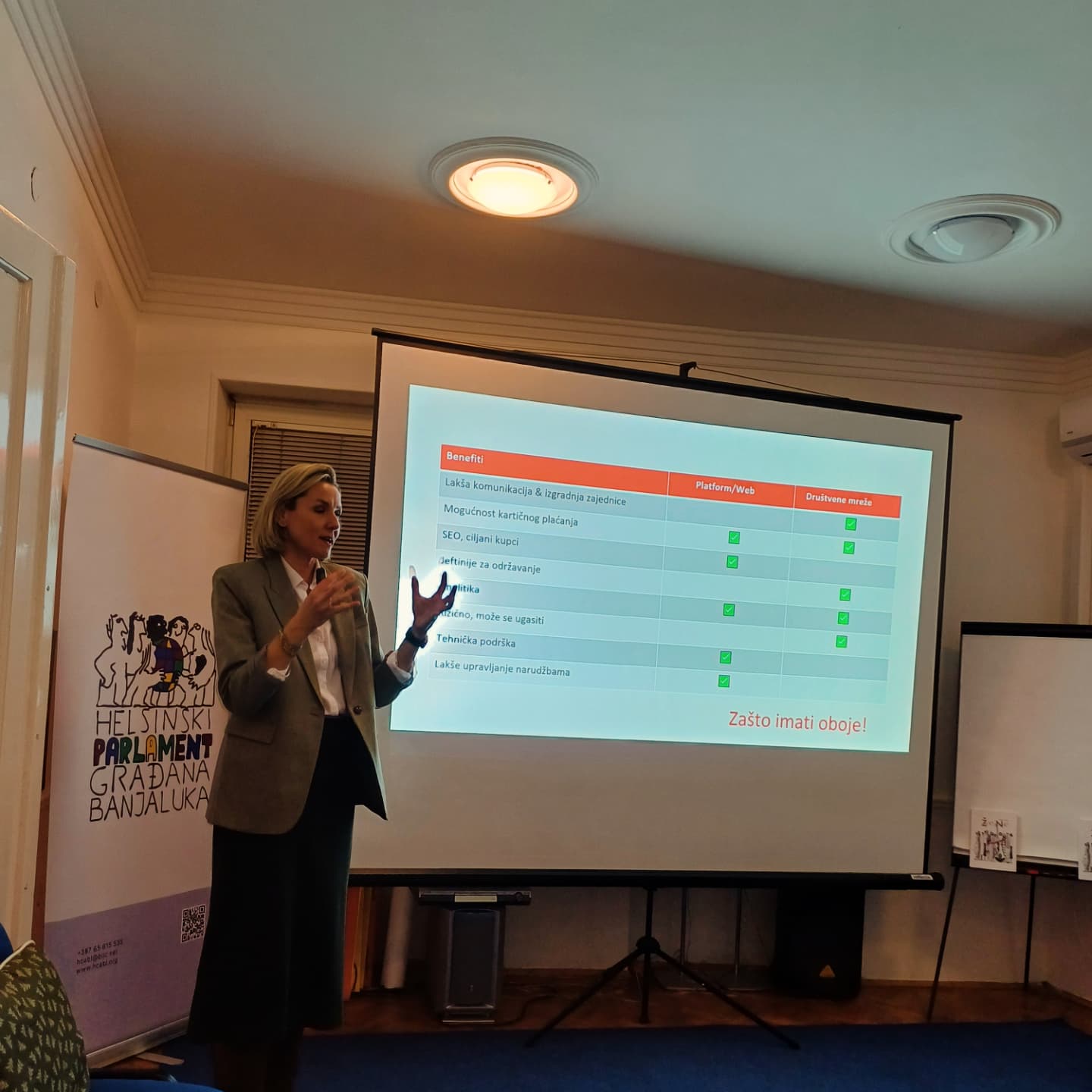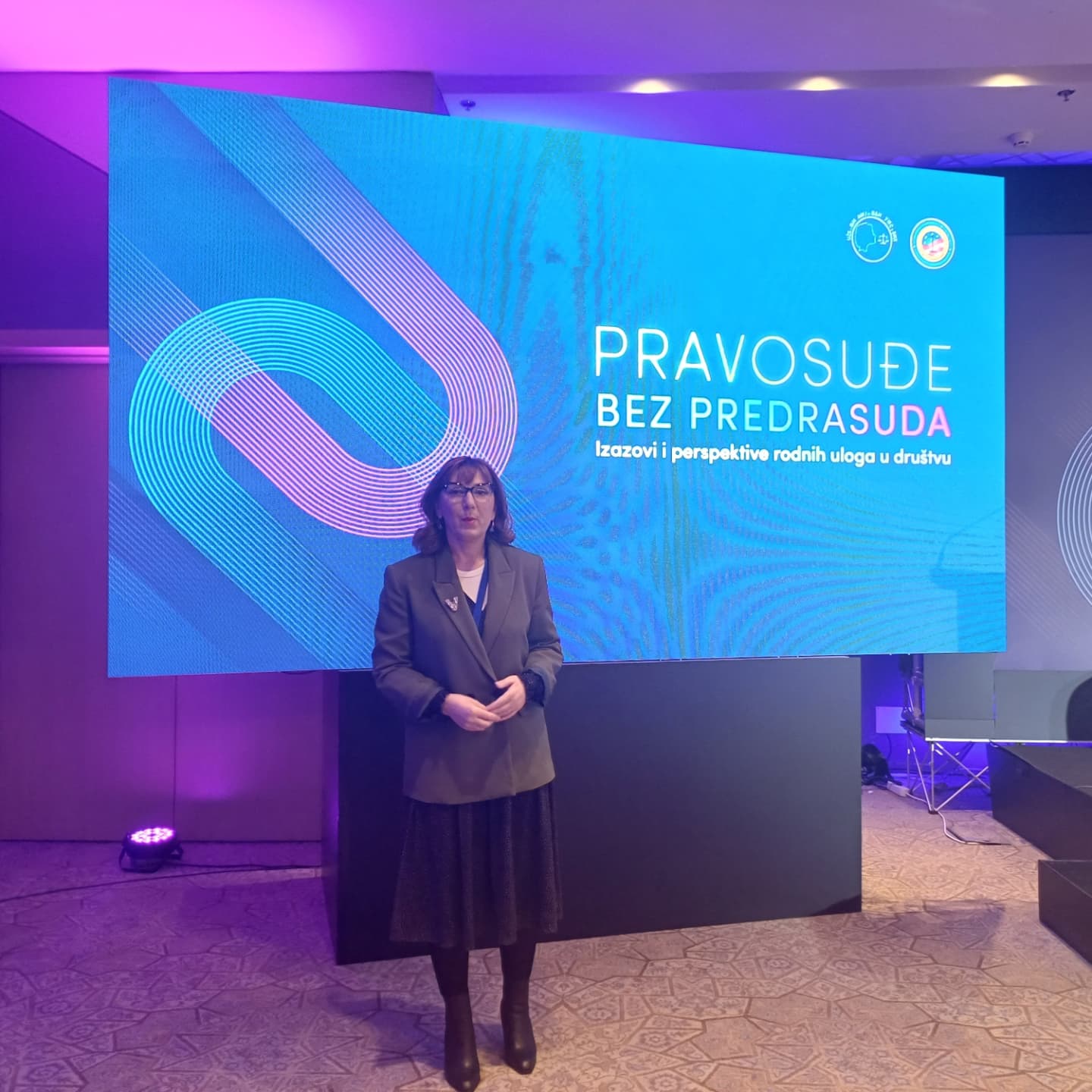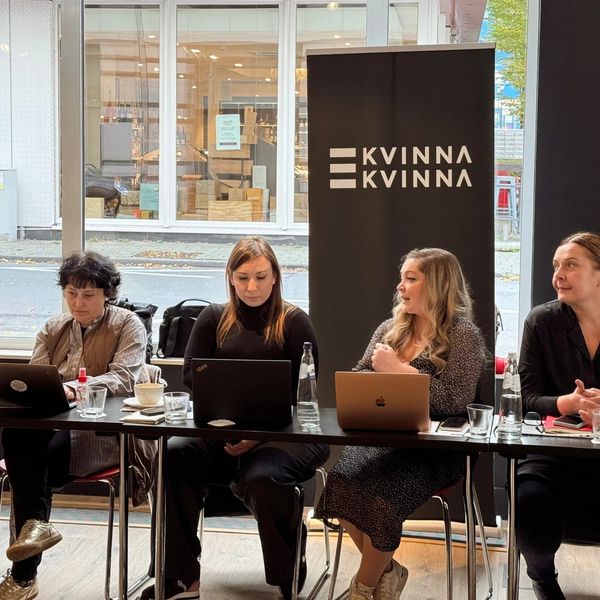As part of cooperation with journalists within the “Citizens in the Fight against Silent Corruption” project, we bring you cooperation with Direkt portal and a text on sexual extortion, with the title “Sexual Extortion under the Veil of Secrecy also Present in Eastern Herzegovina”.
Sexual extortion in the workplace, under the veil of secrecy, also happens in eastern Herzegovina. Our interviewees say that it is deeply rooted in society, but that no one talks about it, so sexual extortion becomes invisible corruption, which is not regulated by laws in the Republic of Srpska, that is, the law does not recognize sexual extortion as such.
Prof. Dr. Aleksandra Vuković from Trebinje believes that sexual extortion is one of the frequent social problems.
She explained to the Direkt portal what sexual extortion actually is.
“Sexual extortion occurs when someone in power abuses their position and demands sexual favors in order to help those who are in a subordinate position or dependent on them. In practice, sexual extortion is understood as a combination of sexual harassment and abuse of entrusted authority, for the purpose of obtaining sexual benefits, and it is much more widespread than it is being talked about”, Prof. Dr. Aleksandra Vuković explained to “Direkt”.
The term “help” in the context of sexual extortion, as explained by the Helsinki Citizens’ Assembly Banja Luka in the “Analysis of Regulations related to Sexual Extortion (sextortion)”, means employment, promotion in the service, passing an exam or, for example, a better grade on the exam.
In the aforementioned analysis, it is also stated that the humiliating position results from the fact that the one who provides sexual service turns his/her body into a commodity, in order to perform sexual service in exchange for the act performed by the seeker of sexual service.
Thus, sexual extortion becomes invisible corruption, because it is kept silent, and even the law of the Republic of Srpska does not recognize sexual extortion as such.
As explained to us by Prof. Dr. Aleksandra Vuković, the very concept of extortion in criminal law is related to some other criminal acts, which mainly refer to the illegal acquisition of illegal property benefits.
*********
Women who, as we know, are mostly victims, often or never speak about it.
One of the victims from Herzegovina who dared to speak about the harassment and ask for help from the Association of Citizens of Republic of Srpska “Stop Mobbing” finally solved her problem. The perpetrators were dismissed from their positions, but the case ended there, without criminal charges being filed.
Anica Ramić, president of the “Stop Mobbing” Association, testified to us about the case of a woman who worked in a public institution, but she did not specify whether it was sexual harassment or extortion.
It was about, she says, a young, beautiful woman who suffered sexual harassment from her superiors for a long period of time.
“The woman called her abusers by their first and last name, because she could no longer psychologically endure constant blackmail. This kind of harassment left consequences for the victim herself. She developed a feeling of anger, discomfort, anxiety, a drop in self-confidence, her ability to work was reduced, she even thought about leaving her job,” recalls Ramić, who then, as she told “Direkt”, all the evidence, with the consent of the victim, forwarded to the director and requested an appointment with him to discuss the topic.
The director’s reaction, which was conveyed to us by Ramić, showed us the picture of the society we live in and the attitude towards women and their physical appearance.
“Well, you saw, Anica, what a beautiful and attractive woman she is, it is no wonder that men look at her,” the director of the public institution concluded with a smile during the conversation, as Anica Ramić testifies.
“I was shocked by this statement. Is it possible that a woman is looked at that way and that if she is beautiful and attractive, everyone has the right to blackmail and sexually harass her”, Ramić told us.
*******
The law remains a dead letter on paper
Although sexual harassment is regulated by laws in the Republic of Srpska, the aforementioned case ended at the level of the institution, no criminal charges were filed, and once again it was shown that the law is a dead letter, and that the institutions are not doing their job, because apparently it was passed easily over the above-mentioned example of sexual abuse, which, according to testimony, had elements of a criminal complaint.
As we found out in the conversation with Anica Ramić, justice was served to some extent, because the responsible persons were removed from the positions they held until then.
Filing a report, on the other hand, would require a long process that could further harm the woman who was going through it all.
“Victims who are exposed to sexual blackmail experience a sense of shame and fear, because of which they do not dare to speak publicly about their experiences and to report cases, especially when they do not have enough confidence in legal mechanisms to help them defend their own integrity,” Ramić believes and adds that in eastern Herzegovina, many women reported to them situations that point to sexual extortion, but they are silent about it.
According to Anica Ramić, sexual harassment in the workplace is a taboo topic in eastern Herzegovina.
“Judging by the miserable punishments, society’s condemnations and finger-pointing at abused persons, the number of reported cases is surprisingly low. The abuse remains unreported, and the abuser remains out of jail, which continues the vicious cycle of shame and silence,” Ramić believes.
And in order to get out of that vicious circle, we can say that in addition to education and raising awareness, we will also need time for all controversial matters to be put in order.
One of the main problems why many cases remain unreported is that the mechanisms for recognizing sexual harassment and blackmail, and providing support to victims are not sufficiently developed.
Most victims, as well as employers in eastern Herzegovina, as Ramić says, do not even know how to react to such a report.
“Lack of clear procedures and effective support measures increase the risk of revictimization and secondary victimization of victims. An educational or work environment in which harassment is kept silent, denied, or internal procedures that do not protect against its repetition is not an environment that encourages work and improvement. Therefore, in order to stop sexual harassment, apart from legal sanctions, a social reaction is extremely important, because it can contribute to the prevention of harassment, that is, that it has fewer consequences”, Ramić believes.
******
Sexual harassment also affects men
Due to gender inequality and culturally conditioned roles, as our interviewee explains, men and women experience sexual harassment in different ways.
“Women perceive sexual harassment as a threat, while men are not afraid that a woman’s excessive sexual interest will threaten their status at work, so sexual jokes or touching do not have the same meaning for men and women. Although men report sexual harassment less often, the attitudes that persistent and intense harassment does not affect men are wrong, especially when it comes to same-sex harassment”, finds our interviewee.
****
This activity was carried out within the project “Citizens in the Fight against Silent Corruption” which is part of the wider program “Support to Citizens in the Fight against Corruption” implemented by CCI with the financial support of USAID. The content is the sole responsibility of the Helsinki Citizens’ Assembly Banja Luka and does not necessarily support the views of USAID or the United States Government.
Photo: Author: Dragana Udovičić (Journalists against Violence)





